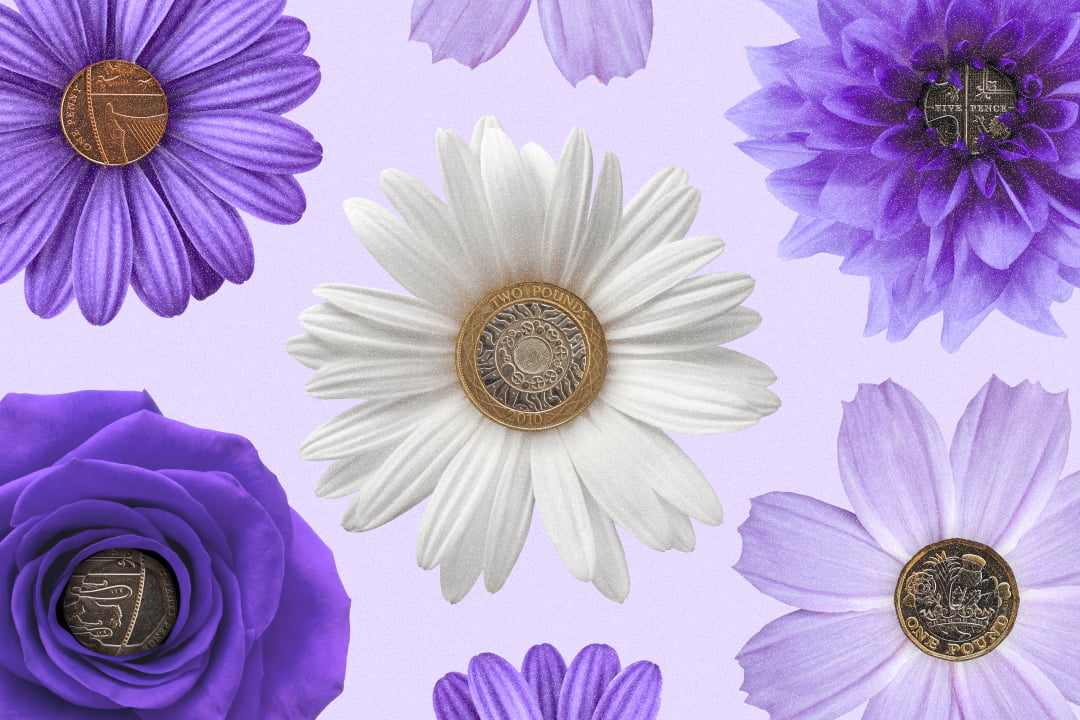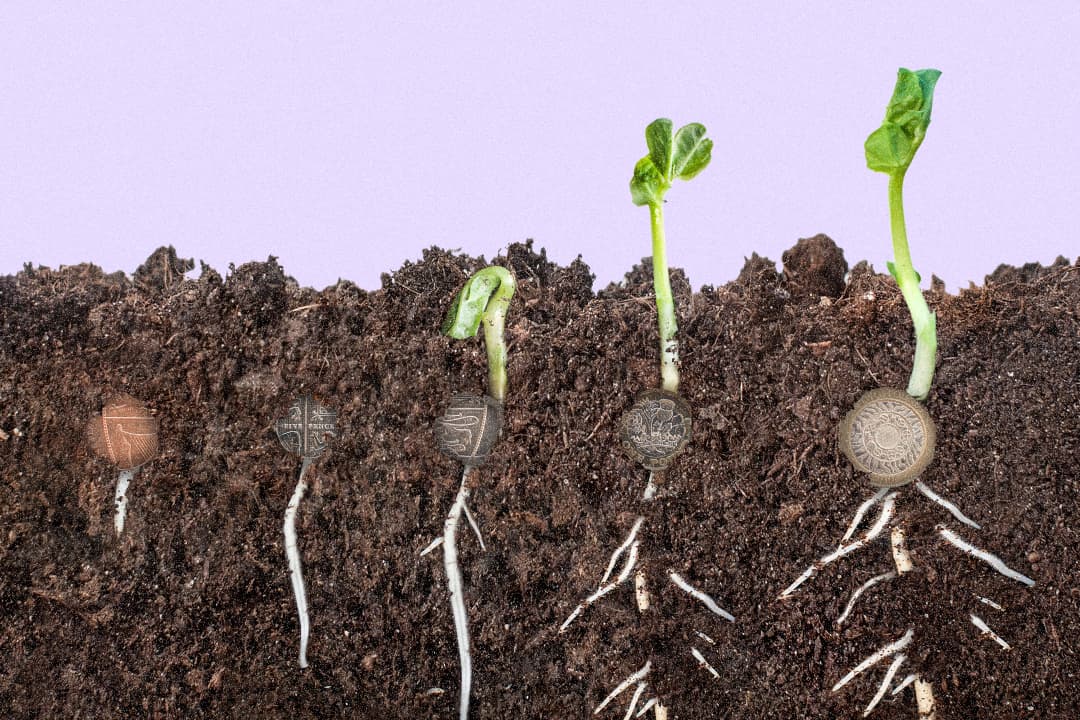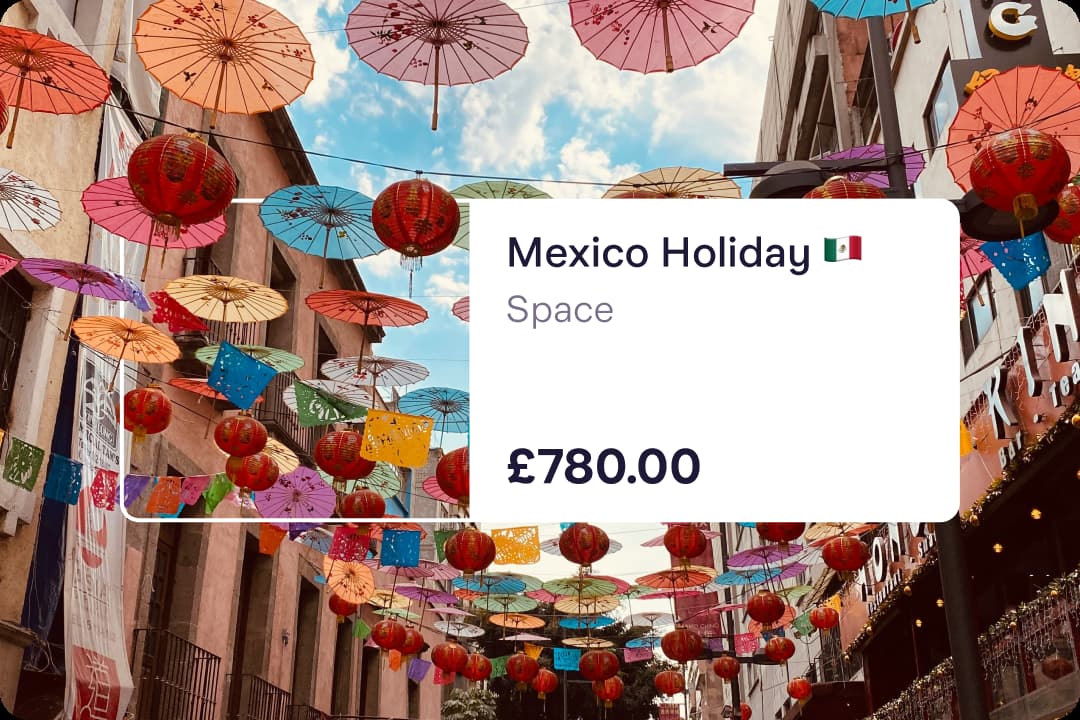
Property
Otegha Uwagba on homeownership
By Otegha Uwagba
How Much Does It Cost?

Creating my dream garden was more by accident than design. Last year, my partner and I bought a new build in a suburb outside London – our first home. It was a big step for us and we loved being able to move in straight away, without having to spend time and money on renovations – except when it came to the garden.
If you’re lucky, a new build developer may throw in some turf for free. Unfortunately for us, ours deemed this an ‘upgrade’ and planned to charge us £500 for the privilege (the space is 100 metre2).
After months of looking at videos on #newbuildTok, I knew how bad new build lawns could get (usually because of poor quality, compact soil filled with building debris and poor drainage). We decided if we were going to pay for it, we may as well do it properly. And so began my journey into the world of DIY gardening.
With that goal set, we went a step further and chose to start with a blank slate. We said no to the £500 turf and instead moved in with a back garden that was just bare ‘soil’ – more like rubble.
It’s worth saying up front that we had £5,000 leftover from our house fund (originally budgeted for customising our kitchen – until I persuaded my partner this money would be better spent on the garden). I naively thought this would be more than enough to get our garden landscaped (turf, patio, flower beds). I even thought we’d have enough left over to buy some nice furniture and maybe a BBQ too. Wrong!

The average homeowner probably has a rough idea of how much a new bathroom or kitchen might set them back. Yet for many, the cost of landscaping a garden often comes as a bit of a shock – especially as it can be hard to find a point of reference unless you know someone who’s done it. And while there are definitely ways to design your garden on a budget, the reality is that garden transformations require machinery, labour and materials – which all add up.
Fortunately, in preparation for my new project, I’d watched the entire back catalogue of Your Garden Made Perfect on BBC. Each episode contains two gardens and talks through the budget for each – one on the lower end and one on the higher end. It didn’t take many episodes for me to realise that I’d be looking at thousands, rather than hundreds, for a garden of my size.
In an attempt to keep the costs down, I decided to do the garden design myself. In an ideal world, we would’ve done the actual landscaping ourselves too, but my partner works away a lot so this wasn’t realistic for us. Design, you can do through research, sketches and online tools. While landscaping, i.e. bringing the design to life, involves a lot of heavy lifting and often requires specialist tools and machinery.
After getting three quotes from local contractors to help bring my design to life, we decided to go for the contractor who came with the best recommendations (these came from our local Facebook group). The quote we settled for also happened to be the cheapest.
A word of warning: if the cost sounds too good to be true, then it probably is. Same goes for availability – if a contractor is booked up for a while then that’s normally a good sign, and means they’re worth waiting for.
We got the keys to our home in September (not a great time for gardens) so there was no immediate rush to get the garden sorted. I spent the winter researching, reading, and drawing up designs before reaching out to contractors in February. The contractor we went with was booked up until July (!) which turned out to be a blessing in disguise as it allowed us to save up a bit more.
In total, we ended up spending just over £7k on the hard landscaping, aka laying the patio, flower beds and borders, laying out a small lawn and large gravel area and filling the borders with decent soil:
| Materials, machinery and labour | £5,986 |
| Patio paving stones | £1,153 |
| £7,139 |
|---|
It took a team of four people just over a week to finish the job. You’ll notice that plants are missing from the cost breakdown. This is because we bought and planted everything ourselves to keep the contractor’s quote down. Spoiler – greenery is expensive!
By the time the work was completed in late July (almost a year after moving in!) we’d missed the summer growing season so we decided to leave our borders and flower beds completely empty until the following spring. This really helped us spread the costs and meant we didn’t have to compromise too much on what we wanted, we just had to wait for a little longer to get it.
Grow things from seed. This is much cheaper than buying established plants and you don’t need anything fancy to get started – you can grow seedlings in a leftover plastic blueberry packet or milk bottles cut in half
Keep an eye out for supermarket bargains, especially for big pots or structural elements like arches
Take cuttings. If you don’t have any plants yet, ask family, friends and neighbours – salvia and geraniums are great for cuttings
If you order bulbs in advance, open the bag straight away so they can breathe. If you leave them too long they might go mouldy and you’ll have to buy a load more
At the end of the summer, harvest seeds from your existing plants to start all over again next year!
Over the last 12 months, I’ve been slowly but surely adding layers of plants. I haven’t tracked my total spending on this, but I probably spend anywhere from £20 to £100+ each month on something garden-related. Here’s an idea of costs from some of the things I’ve bought from garden centres, as well as supermarkets and homeware shops.
| Climbing Roses (x3) | £30 per rose |
| Salix Flamingo Trees (x6) | £45 per tree (very affordable by tree standards!) |
| Perennial border plants (x12) | £15 per plant (you can get these cheaper if you buy younger ‘plug’ plants) |
| Lawnmower | £110 |
| Sprinkler | £30 |
| Mini greenhouse | £50 |
| Total | £730 |
|---|
| Item | Amount | When I buy them | When they flower |
|---|---|---|---|
| Spring bulbs (crocus, daffodil, tulip) | £15 per 30 bulbs | Autumn | Spring |
| Flower and vegetable seeds | £2-£3 per packet | Winter | Summer |
| Dahlia tubers | £5 per tuber | Winter | Summer |
| Summer bedding plants (6 pack) | 3 for £12 | Late Spring | Summer |
| Peat-free multi-purpose compost (40L bag) | 2 for £15 | Every 3 months (on average) | - |
| Mulch | £7.50 per bag | Autumn | - |
There’s something extremely soothing about the cyclical nature of gardening. I’m much more appreciative of the world around me – nature is full of tiny miracles that stop me in my tracks and give me a moment’s solace in my otherwise chaotic day.
Transforming our garden has transformed my mental health. I’m currently nurturing hundreds of little seedlings, which I’m planning to give out to friends and family to inspire them to get into gardening too. Last October, I helped a friend plan and plant some spring bulbs and she’s been sending me weekly updates since the bulbs started to emerge – something I know has helped her feel rooted and happy.
Feeling inspired? Keep track of how much you’re spending on bulbs, seeds and tools using the ‘Garden’ category in Spending Insights – a free feature for all Starling customers.
Explore our current account
Property
By Otegha Uwagba

Money truths
By Justin Quirk

How Much Does It Cost?
By Hannah Summers

Group holidays
By Kat Storr